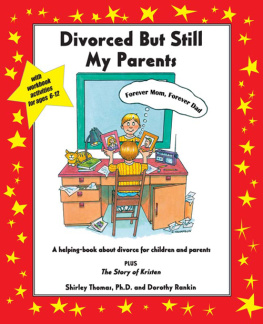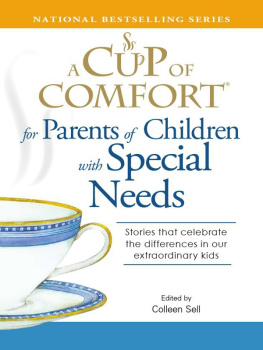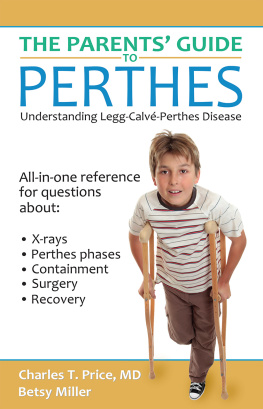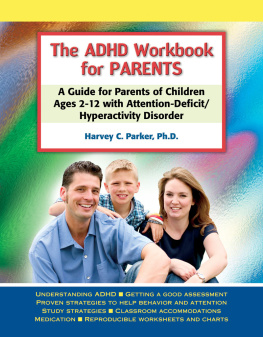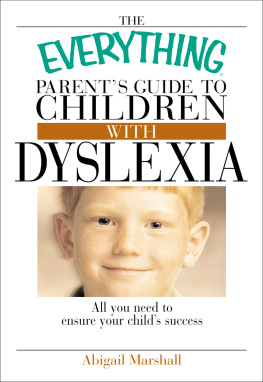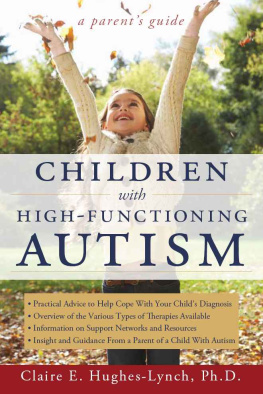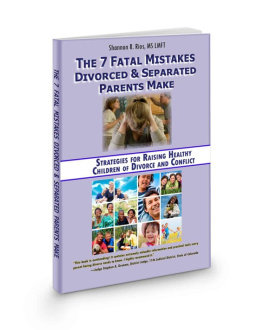Shirley Thomas - Divorced But Still My Parents
Here you can read online Shirley Thomas - Divorced But Still My Parents full text of the book (entire story) in english for free. Download pdf and epub, get meaning, cover and reviews about this ebook. year: 2012, publisher: Springboard Publications, genre: Children. Description of the work, (preface) as well as reviews are available. Best literature library LitArk.com created for fans of good reading and offers a wide selection of genres:
Romance novel
Science fiction
Adventure
Detective
Science
History
Home and family
Prose
Art
Politics
Computer
Non-fiction
Religion
Business
Children
Humor
Choose a favorite category and find really read worthwhile books. Enjoy immersion in the world of imagination, feel the emotions of the characters or learn something new for yourself, make an fascinating discovery.
- Book:Divorced But Still My Parents
- Author:
- Publisher:Springboard Publications
- Genre:
- Year:2012
- Rating:4 / 5
- Favourites:Add to favourites
- Your mark:
Divorced But Still My Parents: summary, description and annotation
We offer to read an annotation, description, summary or preface (depends on what the author of the book "Divorced But Still My Parents" wrote himself). If you haven't found the necessary information about the book — write in the comments, we will try to find it.
This book for children is a companion book to Shirley Thomas Parents Are Forever. It is meant for parents to read with children at the same time they are reading Parents Are Forever themselves. The authors goal is to create a child-help guide that loving parents can use to help their children.
Divorced But Still My Parents opens with an explanation of the grief recovery model. The stages of mourning are outlined so parents can recognize signs in their children. Parents are told that many children will do best if moms or dads actually read the book along with their boys and girls. Others may want the privacy of going through the book alone. For some children, the workbook activities will serve as a personal journal of their experiences during this difficult time.
The primary message of Divorced But Still My Parents is that separation results in a restructuring of the childs original family, but not disintegration. Both parents remain at the center of childrens lives, and both of them will always love their sons and daughters. Children are encouraged to accept changes in their living circumstances, and even look forward to the prospect of future step-families.
Divorce recovery for children is a process, so the material in Divorced But Still My Parents is organized logically, according to the stages of the grief recovery model. This is a totally unique feature of the book. No previously published book specifically applied the stages of grief to the problems of children in divorce. Chapters addressing the five stages of mourningdenial, anger, bargaining, depression, and acceptanceare interspersed with interactive activities.
The four part Story of Kristen, a charming kitten who goes through the process of divorce with her parents, shows children how to cope. It is a powerful tool for teaching children that they can adapt to family change. When children are encouraged to participate by writing down their feelings or drawing pictures of family members, healing is enhanced.
The design of Divorced But Still My Parents draws children into the pages, and creates faster learning. There are colorful illustrations sprinkled throughout the chapters. There is s a clear and enlightening section of questions and answers frequently asked by children, and an easy-to-use glossary that explains the meanings of divorce-related terms. Children who have finished Divorced But Still My Parents feel better about their families. They have learned tools to help themselves continue the grief recovery process. Many keep their copy of the book forever, as a diary recording their important inner feelings.
Shirley Thomas: author's other books
Who wrote Divorced But Still My Parents? Find out the surname, the name of the author of the book and a list of all author's works by series.

